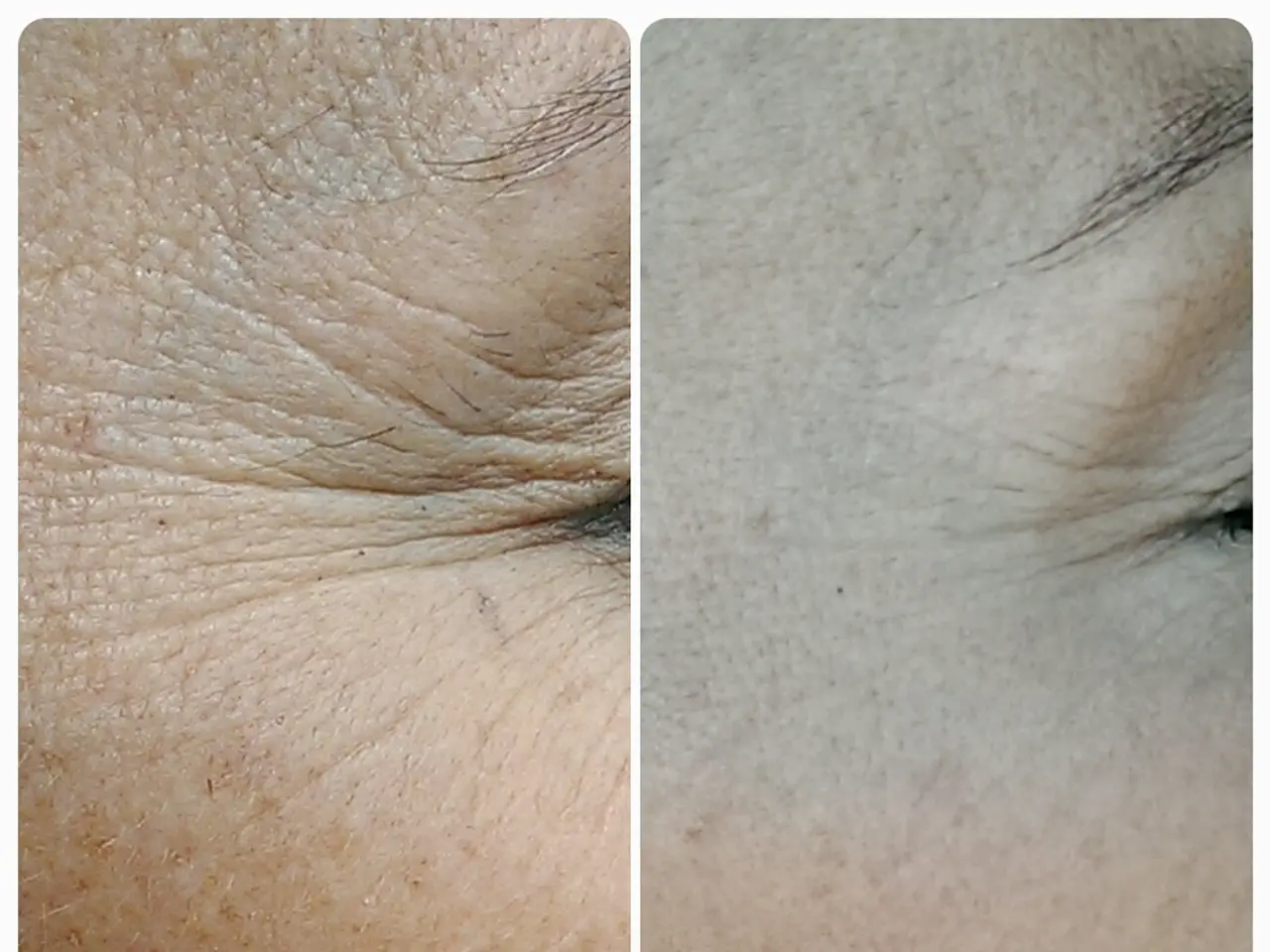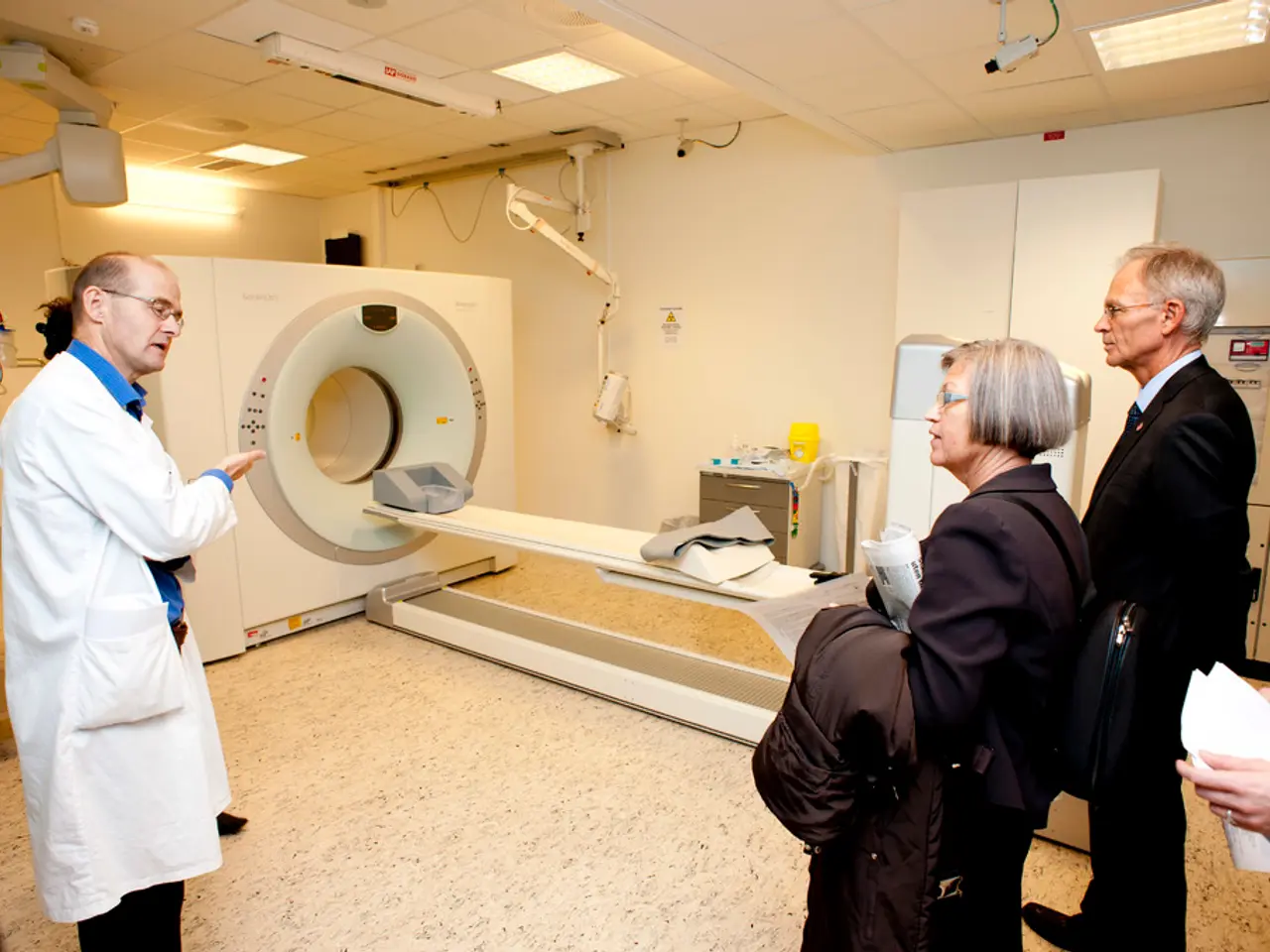Skin Lesion: Origins, therapies, and at-home cures
In the realm of skin imperfections, pustules stand out as one of the most noticeable. These small, raised bumps, filled with pus, can be a source of concern for many. Here's a comprehensive guide to understanding pustules, their causes, prevention, and treatment.
Pustules are typically white and tender to the touch, larger than whiteheads and blackheads, and occur when the pore's walls break down. This breakdown can be caused by a variety of factors, including acne, folliculitis, and certain types of psoriasis and eczema.
However, pustules can also arise from other conditions. For instance, Impetigo, a bacterial skin infection common in children, can cause pustules, as can Eczema in severe cases. Pityrosporum Folliculitis, an overgrowth of Malassezia yeast in hair follicles, can lead to pustular lesions. Psoriasis, a chronic skin disorder, can present with pustules, especially in the form known as pustular psoriasis.
Infections, allergic reactions, heat rash, certain STIs, and even some medications can also cause pustules. It is crucial to consult a healthcare provider for proper diagnosis and treatment if you suspect a pustule is due to an infection or another serious condition.
Pustules tend to appear on areas of the body that become oily or get sweaty, such as the face, neck, chest, upper neck, and upper arms. Prevention involves cleaning these areas regularly and keeping them oil-free. However, it's important to note that products containing oils can clog pores and cause pustules to form.
When it comes to treatment, keeping the skin clean and using over-the-counter creams, ointments, and soaps containing salicylic acid or benzoyl peroxide can be effective. For larger pimples like nodules and cysts, medical attention may be necessary.
Home remedies for treating pimples, including pustules, include using clay masks, essential oils such as tea tree oil or rosemary oil, aloe vera gel, and other natural substances. However, it's essential to avoid picking at or popping a pustule to prevent further damage and extend the healing process.
Pustules are usually harmless and go away on their own, but if they get worse, do not clear up, or are chronic, a person should speak to their doctor about additional treatment options. People with sensitive skin should look for products that are less irritating and could help moisturize the skin while treating pimples.
In conclusion, while pustules may be a cause for concern, understanding their causes and proper treatment methods can help manage their appearance and prevent further complications. Always consult a healthcare provider for any skin concerns or questions.
- Psoriasis, a chronic skin disorder, can present with pustules, especially in the form known as pustular psoriasis.
- It is crucial to consult a healthcare provider for proper diagnosis and treatment if you suspect a pustule is due to an infection or another serious medical condition like COPD or obesity, which can also cause pustules.
- Atopic dermatitis, a type of eczema, can cause pustules in severe cases and is a common health and wellness concern affecting many individuals.
- In the realm of skin care, understanding pustules, their causes, and treatment can help in maintaining skin health and preventing skin issues like acne or tier (a type of skin imperfection that isn't specified in the given words).
- Science advances in the medical field can lead to predictive tests and treatments for various skin conditions, including psoriasis and acne, allowing for faster recovery and improvement in the quality of life for those affected.
- People with medical conditions like COPD or obesity may be more prone to skin problems like pustules and should prioritize skin care and health and wellness to maintain overall well-being.




